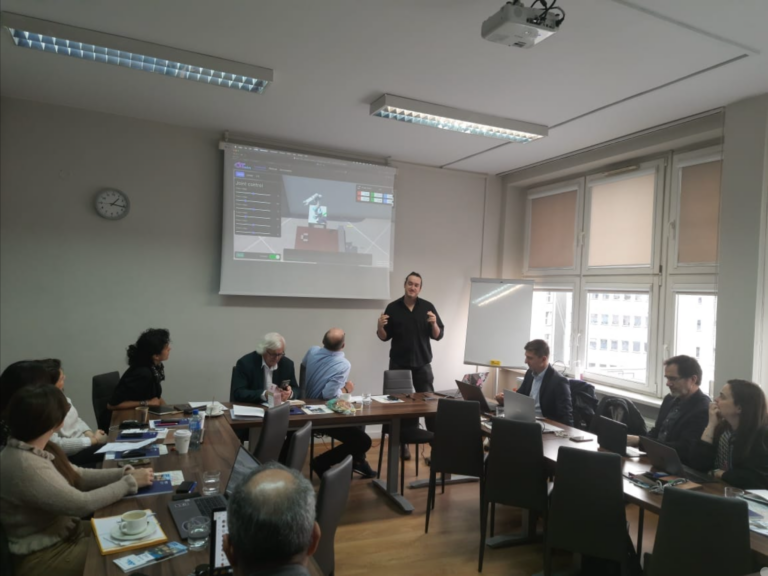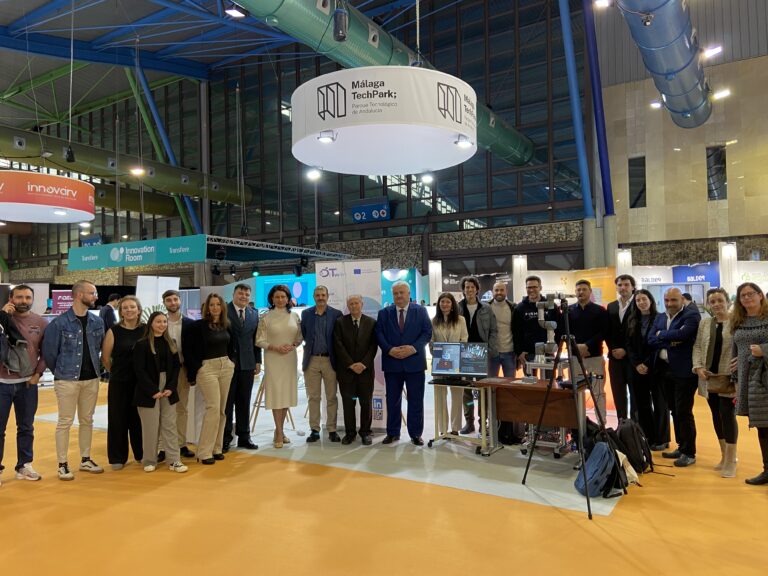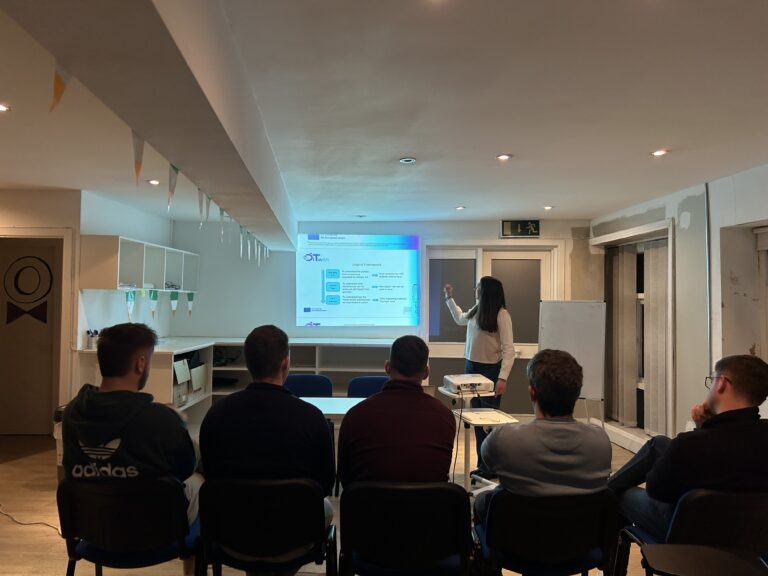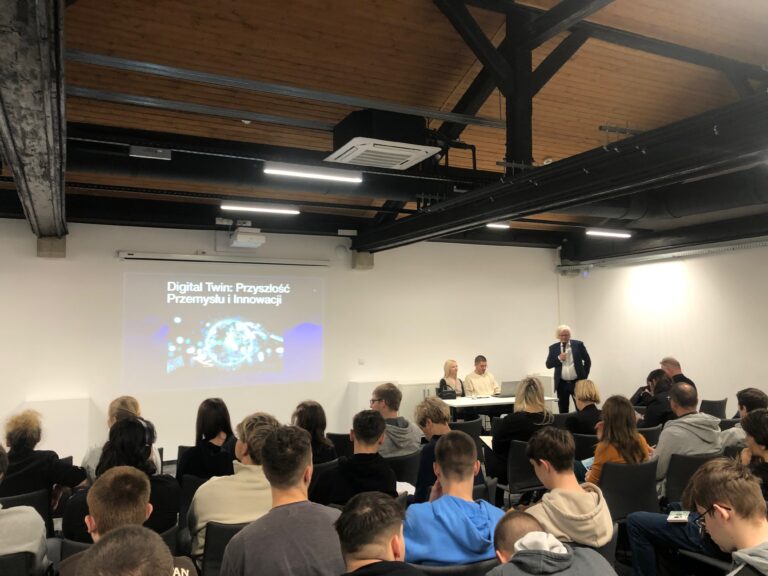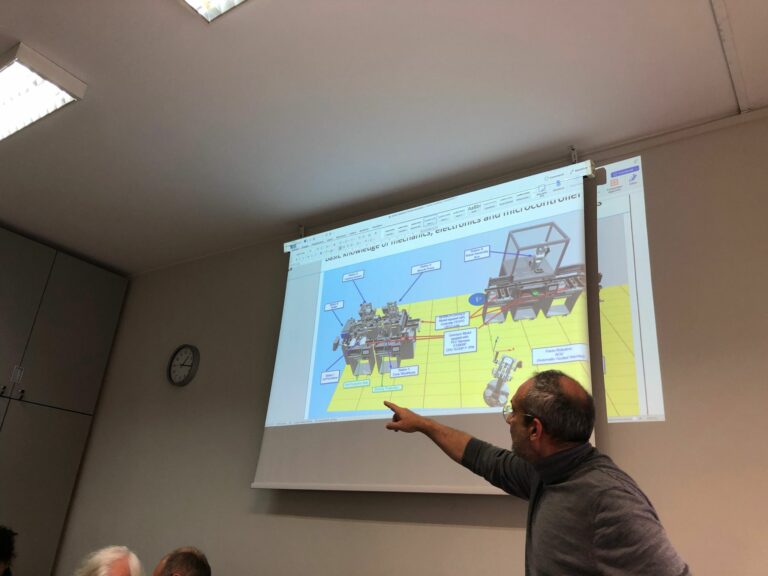Digital Twin for VET schools
Il progetto
Il progetto DiTwin – Digital Twin for VET schools è un progetto di partnership di cooperazione della durata di 2 anni nel settore dell’istruzione e formazione professionale (KA220-VET) finanziato nel quadro del programma Erasmus+.
L’obiettivo principale del progetto è migliorare l’efficacia dei curricula VET per raggiungere le competenze necessarie per l’Industria 4.0. Il progetto intende colmare il divario tra le strutture e le attrezzature delle scuole VET sfruttando il potenziale della tecnologia Digital Twin.
La tecnologia Digital Twin consente attività di apprendimento basate sul lavoro ben allineate rispetto gli ultimi sviluppi delle industrie manifatturiere. Ciò supporterà l’adattamento dei curricula VET e dell’offerta formativa degli enti di formazione professionale alle reali esigenze di competenze e fornirà un nuovo approccio educativo.
Il progetto permetterà alle scuole che non possono accedere a strumenti avanzati, macchinari e laboratori di implementare un apprendimento pratico ed esperienziale per acquisire le competenze richieste dall’Industria 4.0.
Il progetto migliorerà anche le competenze digitali dei docenti VET per sostenere l’implementazione di attività basate su digital twin e il raggiungimento delle competenze digitali richieste dall’industria 4.0.
Risultati

Moduli DiTwin
Gemelli digitali per gli studenti VET con l’obiettivo di sviluppare le competenze necessarie per
Industria 4.0.

Piattaforma DiTwin
Una piattaforma online gratuita che consente agli insegnanti e agli studenti di accedere e utilizzare i Moduli DiTwin a scuola.

Manuale DiTwin
Fornisce agli insegnanti e agli istruttori VET strumenti e risorse educative per implementare, supportare, gestire e valutare attività efficaci basate su Digital Twin.

Corso di Formazione transnazionale DiTwin
Un corso di formazione transnazionale per gli insegnanti VET mirante allo sviluppo delle competenze tecniche e pedagogiche necessarie per implementare e gestire attività basate su Digital Twin nelle scuole.

DiTwin Video Tutorial
Si tratta di una guida semplice per gli insegnanti VET su come implementare i Moduli DiTwin in classe.

DiTwin Demo Event
È un evento dimostrativo online che presenta la piattaforma DiTwin e il suo utilizzo.
News
DiTwin Project Update: New Developments in Digital Twin Implementation and Training
After months of intense collaboration between partners, the DiTwin project is reaching a crucial milestone. The collective efforts invested so far have laid a solid foundation, allowing the project to consolidate the results achieved and take another decisive step towards its final goal. By harnessing the potential of Digital Twin technology, DiTwin is shaping new educational methodologies that bridge the gap between innovation and practical application in the vocational education and training (VET) sector. The focus over the coming months will shift to implementing the DiTwin modules. This phase is a unique opportunity for participants to apply Digital Twin technology in real-world scenarios and explore its technical and pedagogical potential. The implementation will provide valuable insights into how this innovative approach can enhance experiential learning, making education more immersive, dynamic, and aligned with the evolving needs of Industry 4.0. In addition, the partnership is working on the implementation of WP3, “DiTwin Backpack”, a dedicated initiative designed to support teachers in acquiring the knowledge, skills, and competences needed to implement, lead, and evaluate practical and experiential learning through Digital Twin-based activities. These are the main activities foreseen by WP3: With these key activities, the DiTwin project is not only advancing in its technological implementation but also fostering a strong community of educators ready to embrace the future of digital learning. As the project moves forward, the partnership remains committed to ensuring that Digital Twin technology becomes an accessible and practical tool for teachers and learners alike, driving innovation in education across Europe. Stay tuned for more updates!
Read MoreDiTwin Multiplier Event showcased in Málaga during Transfiere 2025
On Wednesday, March 12, the Spanish Multiplier Event of the European DiTwin project took place in Málaga, during Transfiere 2025 — the largest European forum for R&D and innovation in Southern Europe — which gathered more than 4,500 professionals from over 1,500 companies and institutions. The event, organized by Málaga TechPark and the University of Málaga, brought together 50 participants, mainly VET teachers, headmasters, academic lecturers, and representatives of international organizations. The session began with presentations by Sonia Palomo (Málaga TechPark) and Víctor Muñoz (University of Málaga), who introduced the DiTwin project and highlighted its role in fostering digital innovation in vocational education and training. Attendees also had the opportunity to take part in a hands-on demonstration at the Málaga TechPark stand, where they explored the robot developed by the University of Málaga as part of the project and experienced first-hand how Digital Twin technology can be integrated into teaching environments. DiTwin’s presence at such a large international innovation event reinforced its position as a reference initiative for the digital transformation of education and helped strengthen connections with industry and education stakeholders. The insights and contacts gathered during the event will contribute to further refining the DiTwin modules and supporting their adoption in vocational training across Europe. The Project continues to move forward in its mission to equip teachers and students with the digital skills required by Industry 4.0.
Read MoreFocus Groups Across All Partner Countries
In January 2025, focus groups meetings for the European DiTwin project took place across all participatingcountries (Ireland, Spain, Italy, Poland, and Greece). The focus groups followed a shared approach in every country. The sessions, held both in-person and online, brought together VET teachers, technology specialists, and industry representatives and focused on threemain topics: 1. The challenges of aligning VET education with labor market demands and Industry 4.0. 2. The support teachers need to integrate Digital Twin technology into their lessons. 3. The review and improvement of the DiTwin Handbook. The DiTwin project, funded by Erasmus+, aims to introduce Digital Twins into vocational education and training (VET). The meetings with teachers and experts helped identify key needs and refine the DiTwin Handbook, which is a crucial guide for implementing this technology in schools. These discussions provided valuable insights that will help tailor the project’s resources to meet the real needs of teachers. Main Challenges Identified 1. Mismatch between VET Curricula and Industry 4.0: Across all countries, the inflexibility of thecurricula was seen as a barrier to introducing new technologies. In Spain, teachers suggested addingDigital Twin modules during flexible training hours and adjusting practical activities to better alignwith Industry 4.0. In Italy, a lack of collaboration between schools and small to medium-sizedbusinesses (SMEs) was mentioned, as many SMEs struggle to provide the resources needed for partnerships with educational institutions.Strengthening ties between education and industry was emphasized as vital to ensuring that training better matches market needs. In Ireland, teachers pointed out that lessons are mostly theoretical and do not always reflect what industries actually need. There was also concern about the lack of technological training for educators, which limits theuse of innovative tools like Digital Twins. 2. A DiTwin Handbook that meets teachers’ needs: Everyone agreed that the DiTwin Handbookshould offer a simple, clear introduction to Digital Twins and how they can be used in teaching. In Spain, teachers suggested the manual should explain how this technology improves efficiency and predictive maintenance in industry, helping students better prepare for their careers. In Italy, teachers recommended including practical examples of how Digital Twins are used with ManufacturingExecution Systems (MES) to monitor processes in real-time and spot problems. In Ireland, the proposal was to include examples from local industries, ready-to-use modules, practical guides, and accessible software tools, ideally open-source or low-cost. In conclusion, the focus groups for the DiTwin project have been key in identifying what teachers need and improving educational resources. The next step is to update the DiTwin Handbook based on the feedback received and organize teacher training sessions. With this initiative, Digital Twins will become an essential tool in preparing vocational students for the digital skills the future job market will demand.
Read MoreExploring the Future of Education: DiTwin Project Brings Digital Twin Technology to Vocational Schools
On Tuesday, 10 December 2024, the DiTwin project hosted a multiplier event at the stunning Museum of Engineering and Technology in Kraków. The event was attended by 23 vocational school teachers, representatives of foundations, NGOs, specialist vocational education institutions, and 49 vocational school students. The meeting’s agenda included a presentation by second-year journalism students from UKEN, who introduced the concept of Digital Twin technology. Dr. hab. Krzysztof Gurba, a professor at UKEN, also delivered a presentation outlining the DiTwin project’s concept, assumptions, expected outcomes, and current progress. At the conclusion of the event, participants had the opportunity to network and engage with project contributors. The first presentation, focused on explaining what Digital Twin technology is, was delivered by second-year journalism students from UKEN: Kinga Tokarczyk and Mikołaj Kawa. During their talk, they defined a Digital Twin as “a virtual copy of a real object, system, or process.” The students further elaborated on the applications of Digital Twin technology in various fields: They also highlighted the benefits of Digital Twin technology, which include: However, they also acknowledged the challenges associated with its implementation: Dr. hab. Krzysztof Gurba, Prof. UKEN, delivered the second presentation, focusing on the DiTwin project’s relevance to vocational education. He explained how Digital Twin technology can revolutionize education. Prof. Gurba emphasized that the project aims to prepare young people for the challenges of Industry 4.0 and 5.0 by leveraging modern technologies as educational tools. He highlighted the international collaboration behind the project, which includes partners such as Learnable (Italy), Digital Smart (Italy), Innovation Frontiers (Greece), Training Vision (Ireland), Malaga TechPark (Spain), Universidad de Malaga (Spain), and the University of the National Education Commission in Kraków (Poland). The project’s outputs include: Prof. Gurba explained that the project focuses on three key areas: 3D printing, robotics, and process automation. The platform developed as part of the project will offer: To conclude, Prof. Gurba announced upcoming pilot tests and a demonstration event for the system. He invited teachers, institutional partners, foundations, and training organizations to collaborate in developing the teacher handbook. He also announced a focus study scheduled for January 2025.
Read MoreHighlights from the Second DiTwin Transnational Project Meeting
The second transnational meeting of the DiTwin project was held on November 14–15, 2024, in Krakow. During the event, project partners reviewed progress, discussed achievements, and laid the groundwork for future advancements in technical training powered by Digital Twins. Progress Achieved Significant milestones have been reached, including: 1. Competence Framework: Finalized, outlining key roles and skills required for Industry 4.0. 2. Specialized Training Modules: Developed for three critical professional profiles: – Additive Manufacturing Technician – Robot Machines Technician – Automation Technician for Industry 4.0 The meeting included practical demonstrations showcasing the use of Digital Twins to simulate industrial machinery and integrate them with real-world devices. The DiTwin Modules The primary goal of the DiTwin modules is to equip students with the skills necessary to thrive in Industry 4.0 using Digital Twins, digital replicas of physical systems connected to educational laboratories. This innovative approach provides an immersive and hands-on learning experience. Target Professional Profiles The training pathways are tailored to meet the demands of three key roles: – Additive Manufacturing Technician: Specializing in 3D printing technologies and additive design. – Automation Technician: Focused on industrial automation and machine programming. – Robot Machines Technician: Proficient in robotics programming and maintenance. Key Features of the DiTwin Approach – Simulation-Based Training: Allowing students to practice safely in virtual environments. – Digital-Physical Integration: Connecting virtual and real machines to provide practical, hands-on training. This educational approach creates a synergy between theory and practice, preparing future technicians to meet the challenges of an increasingly digitalized and interconnected industrial world.
Read MoreDiTwin second Transnational Project Meeting
The second transnational project meeting will be held in Krakow (Poland) on 14-15 October 2024, hosted by the UNIWERSYTET PEDAGOGICZNY IM KOMISJI EDUKACJI NARODOWEJ W KRAKOWIE. All project partners (Learnable – IT, Digital Smart Srl – IT, PARQUE TECNOLOGICO DE ANDALUCIA – ES, UNIVERSIDAD DE MALAGA – ES, UNIWERSYTET PEDAGOGICZNY IM KOMISJI EDUKACJI NARODOWEJ W KRAKOWIE – PL, ETN Training Vision Ireland – IRL, and Innovation Frontiers IKE – GR) from five countries (Italy, Poland, Spain, Greece, and Ireland) will attend the two-day meeting, with at least two staff members per organisation. The upcoming project meeting will provide an in-depth review of the progress and next steps for the DiTwin project. The agenda will cover the following key topics: To learn more about the project’s advancements, you can follow our Facebook or LinkedIn pages.
Read MorePartners

Learnable è una comunità di esperti che lavora da anni allo sviluppo di pratiche educative innovative. Learnable si concentra nel supportare gli apprendisti europei nell’acquisizione di competenze trasversali e specifiche che consentano alle persone di raggiungere i propri obiettivi sia nel lavoro che nella vita. Learnable è attiva in diversi settori, come l’educazione degli adulti, l’istruzione e formazione professionale (VET), le scuole e l’istruzione superiore, promuovendo metodologie educative innovative in campi diversi come l’innovazione digitale, l’inclusione, le competenze linguistiche, l’economia verde e l’imprenditorialità. La comunità cerca soluzioni innovative per rendere l’istruzione accessibile e inclusiva. Learnable supporta l’implementazione di metodologie educative innovative volte a migliorare la qualità dell’offerta formativa e a sostenere la transizione dalla scuola al lavoro e l’occupabilità degli studenti.
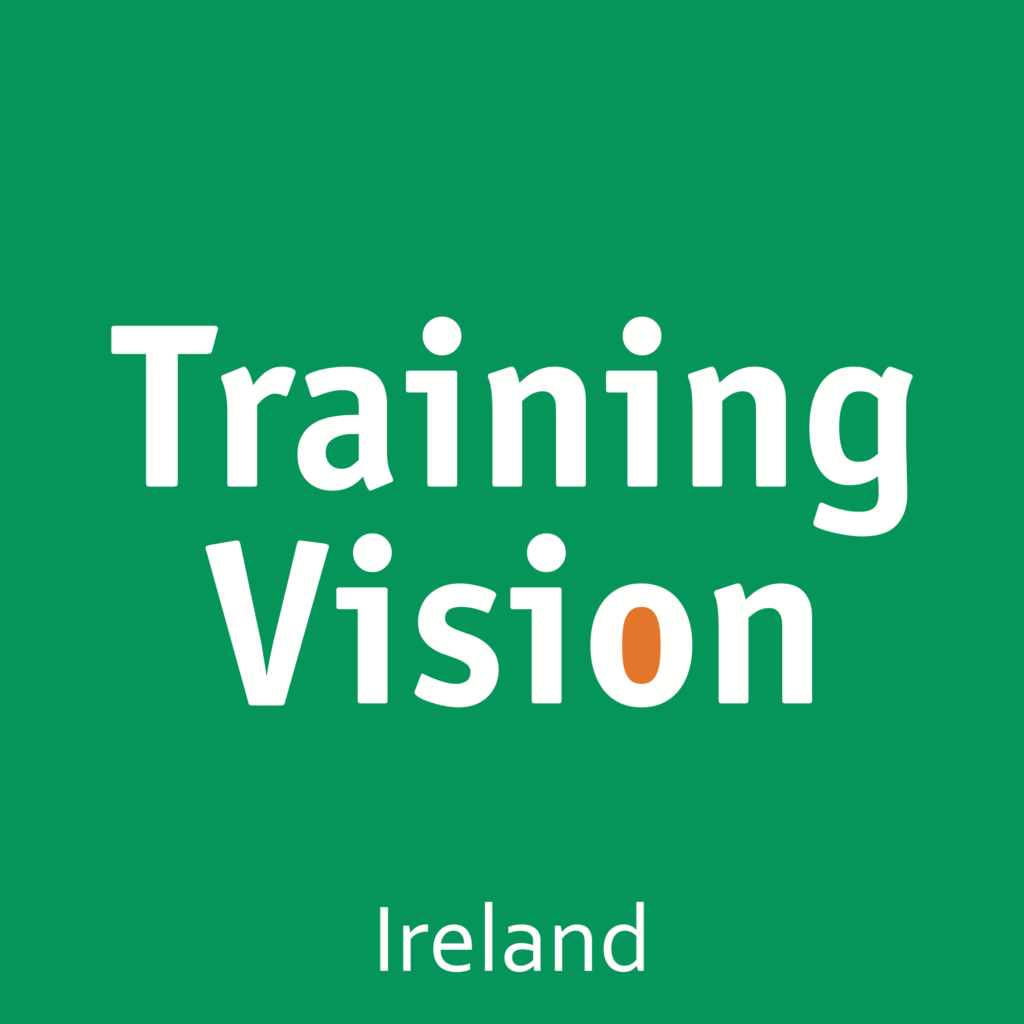
ETN Training Vision Ireland è stata fondata nel 2016 per soddisfare la crescente domanda di formazione professionale e opportunità di sviluppo culturale in Irlanda.
Situata a Cork, ETN Training Vision Ireland organizza e gestisce tirocini e programmi educativi per giovani studenti, personale docente, giovani lavoratori e organizzazioni provenienti da tutta Europa. Training Vision è membro della “Rete ETN” (Education and Training Network) con agenzie in Spagna (Malaga), Bulgaria (Sofia), Italia (Rimini e Potenza), Regno Unito (Portsmouth), Germania (Berlino), Portogallo (Lisbona) e Irlanda (Cork). Nel 2016, 2017, 2018 e 2019 ETN è stata premiata come vincitrice nella categoria Fornitore di Esperienza Lavorativa degli Study Travel Star Awards a Londra. Un importante riconoscimento per professionalità, qualità e attenzione a tutti gli aspetti della formazione in mobilità.
Training Vision Ireland si specializza nel favorire la crescita e l’apprendimento sia degli studenti che degli adulti in un mondo in rapida evoluzione.
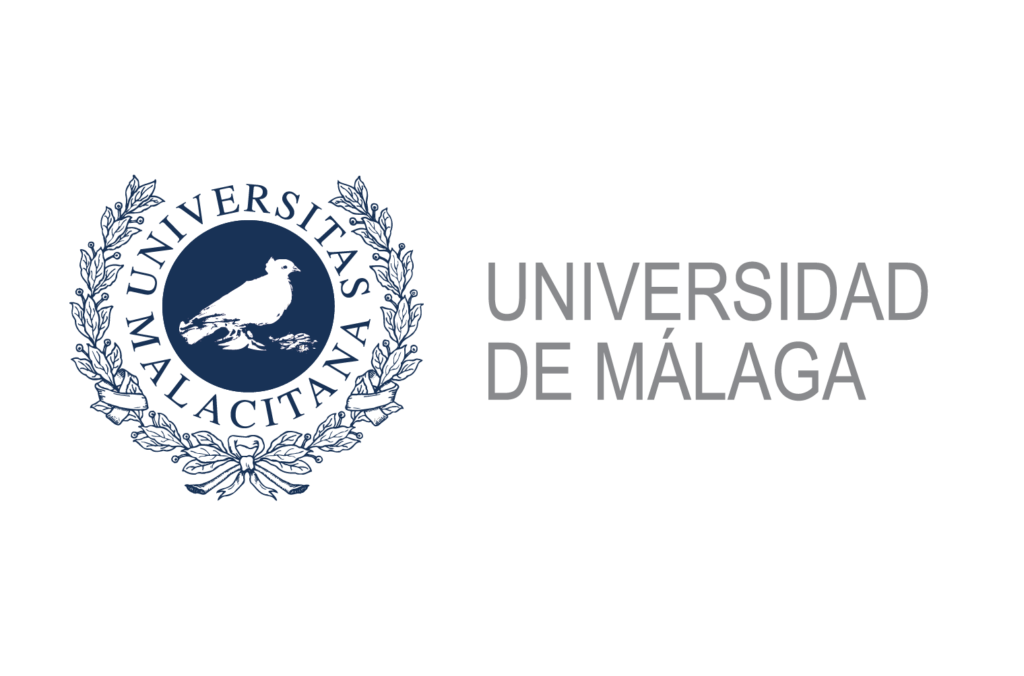
La University of Malaga è un’istituzione che genera e trasmette conoscenza, fornendo servizi di istruzione superiore attraverso l’insegnamento, lo studio e la ricerca. È un’università dinamica e innovativa, aperta e partecipativa al servizio della società, integrata nell’Area europea dell’istruzione superiore e della ricerca, e collegata al mondo aziendale e al Parco Tecnologico Andaluso.
L’Istituto Universitario per la Ricerca in Ingegneria Meccatronica e Sistemi Cibernetici (IMECH.UMA) è stato creato con lo scopo principale di promuovere la ricerca interdisciplinare di qualità e il suo trasferimento alla società, oltre a promuovere azioni nel campo degli studi post-laurea e dottorali, e nella formazione specializzata.
Il laboratorio di robotica medica, che fa parte del consorzio, ha un’ampia esperienza nella progettazione e nello sviluppo di robot chirurgici per uso clinico, e nello sviluppo di gemelli digitali per l’industria, e una lunga storia di collaborazione con l’ambiente clinico e aziendale.
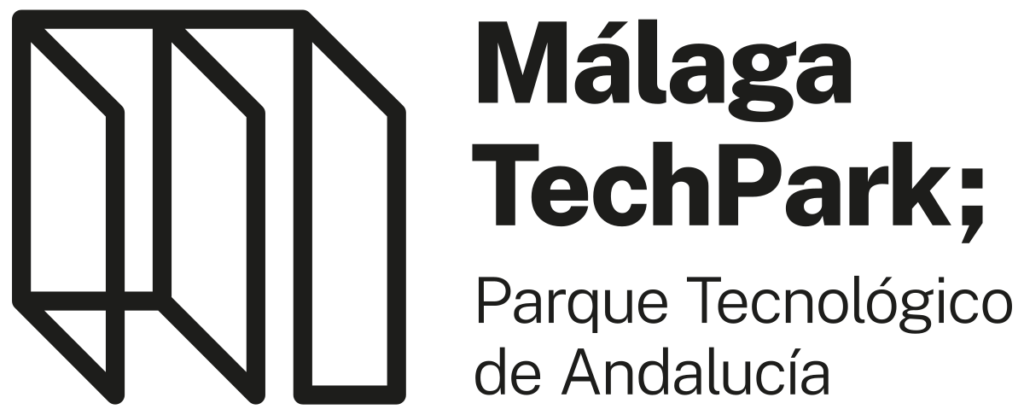
Il Málaga TechPark, inaugurato nel 1992 a Málaga (Spagna), è diventato un grande polo di attrazione innovativa in Andalusia e in Europa, con tecnologia e innovazione che sono la chiave per il suo sviluppo. Il Technopolis è un punto di riferimento internazionale che può essere descritto come un incoraggiante centro di attrazione per le aziende innovative e un ecosistema per aziende ad alta tecnologia e imprenditori.
Il Málaga TechPark è stato appositamente progettato per ospitare tutti i tipi di entità che si occupano di innovazione. Il Technopolis è un punto di riferimento internazionale in termini di parchi scientifici e tecnologici dove il settore delle tecnologie dell’informazione domina, sia nella ricerca e sviluppo, che nella produzione di attrezzature e servizi, con un approccio innovativo e rispettoso dell’ambiente. Altri settori presenti nel parco sono l’energia, l’ingegneria, l’economia circolare, l’industria, l’agroalimentare, la biotecnologia, tra gli altri. Con oltre 650 aziende e diversi agenti chiave nel Sistema di Conoscenza Andaluso, come l’Università e i suoi gruppi di ricerca, oltre 24.000 dipendenti, un’area di 200 ettari con un progetto di espansione in corso, il PTA può essere considerato uno dei principali centri per l’innovazione e lo sviluppo economico in Andalusia.
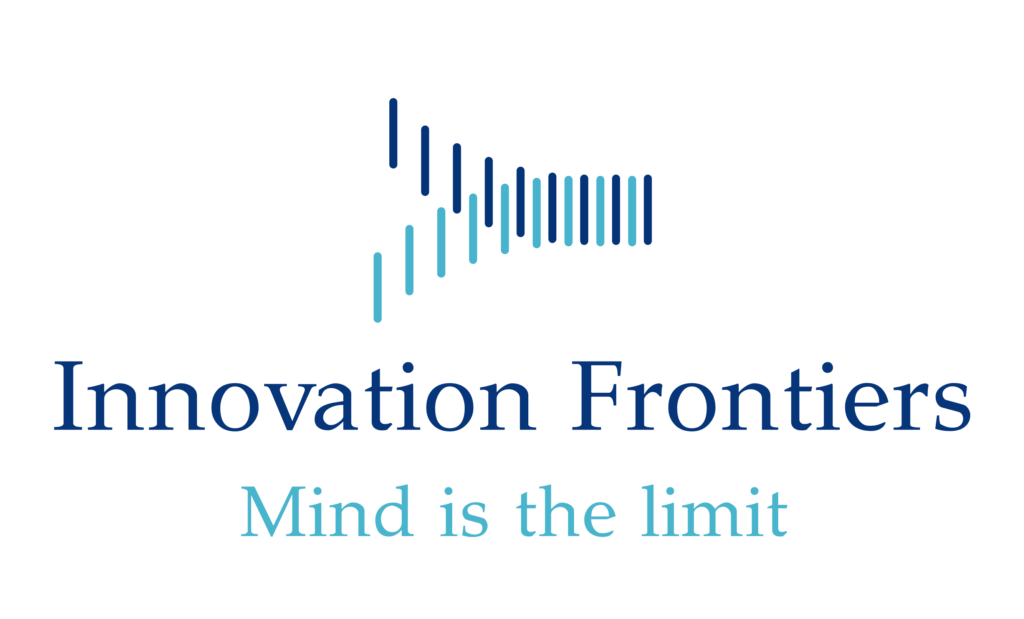
Innovation Frontiers IKE è un’innovativa azienda di tecnologia educativa e ricerca che si specializza nella creazione di esperienze di apprendimento educative, coinvolgenti e divertenti che incorporano innovazione, creatività e gamification per migliorare il flusso degli apprendenti. La nostra azienda offre un’ampia gamma di soluzioni, tra cui eLearning personalizzato interattivo, Serious Games, Risorse Educative Aperte, Simulazioni di Formazione, Animazioni Educative e Apprendimento Mobile. Combiniamo design di gioco, tecnologia di gioco, design istruzionale e psicologia per padroneggiare l’arte di creare giochi educativi, simulazioni e formazione. Innovation Frontiers IKE ha anche una grande esperienza in progetti di ricerca (europei e internazionali). L’azienda segue processi di assicurazione della qualità molto rigorosi e completi nello sviluppo del suo software e nella gestione dei progetti europei e internazionali di cui fa parte. Inoltre, l’azienda integra le implicazioni delle neuroscienze educative in classe al fine di migliorare l’efficienza dell’apprendimento e dell’insegnamento.

Digital Smart è un provider di formazione professionale impegnato nella formazione per la trasformazione digitale delle aziende manifatturiere. Opera nella regione Marche e, per la formazione dei lavoratori, ha ampliato la sua azione nel centro Italia. È stata fondata da consulenti informatici con più di vent’anni di esperienza nella raccolta fondi e nello sviluppo delle capacità, nella creazione di imprese e nell’orientamento professionale.
Digital Smart gestisce un’Accademia che ospita un corso di alta formazione biennale intitolato “Robotica intelligente, Digitalizzazione aziendale e Progettazione 3D” e organizza corsi personalizzati e accademie aziendali su misura, il cui obiettivo è formare Tecnici Superiori, con conoscenze e competenze sulle tecnologie abilitanti dell’Industria 4.0.
Nella sede di Digital Smart ci sono aule di formazione all’avanguardia, laboratori di meccatronica inclusa una Fabbrica Cibernetica, Industria 4.0.
Digital Smart fa parte anche di un consorzio nazionale chiamato “Innovazione italiana per il lavoro”, composto da istituti di formazione professionale e accademie di formazione.
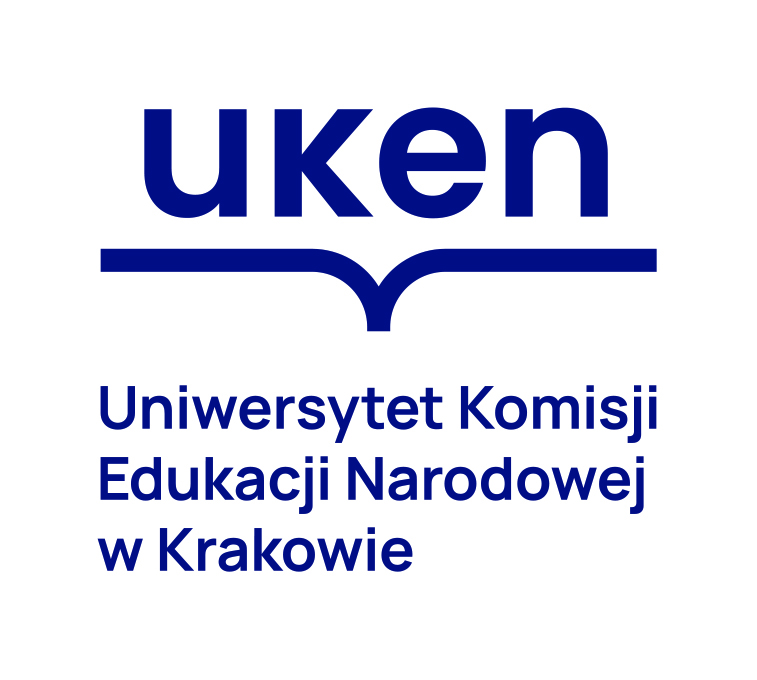
Per oltre 75 anni, l’Università della Commissione Nazionale per l’Istruzione di Cracovia ha dominato tra le istituzioni di istruzione superiore pedagogiche in Polonia ed è anche la più antica università pedagogica del paese. È eccezionale per il suo alto prestigio, l’istruzione professionale e la modernità.
La missione dell’Università della Commissione Nazionale per l’Istruzione di Cracovia è esercitata da personale docente professionale ed esperto che applica contenuti didattici moderni e aggiornati. È anche espressa attraverso la ricerca scientifica, delineando nuovi campi di sviluppo scientifico, trasmettendo conoscenze e sviluppando e arricchendo la personalità dei suoi laureati educandoli secondo i più alti standard europei.
Ai nostri studenti offriamo gli ultimi progressi nelle discipline umanistiche, nonché negli studi sociali, educativi, naturali, tecnici e artistici. La nostra offerta educativa consente agli studenti di scegliere tra diverse decine di corsi di laurea di primo ciclo (laurea triennale) e di secondo ciclo (laurea magistrale), nonché studi di terzo ciclo (dottorato), e corsi di studio post-laurea.

